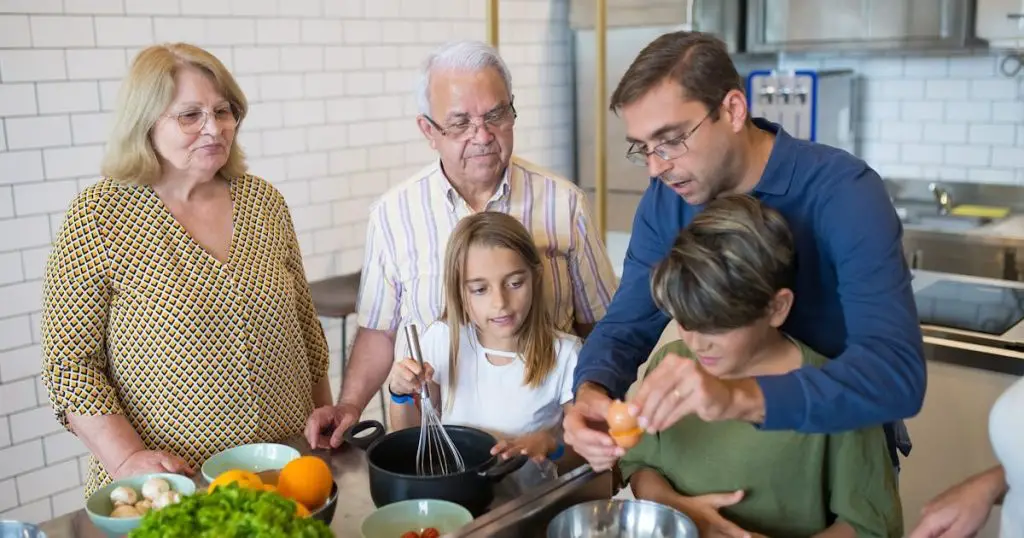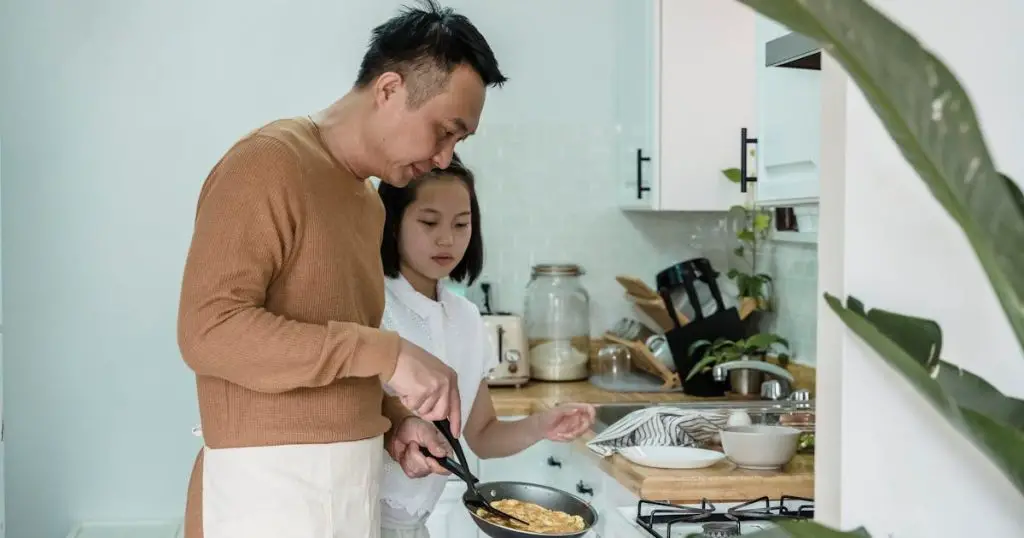Key Takeaway: Nutrition education and cooking are essential for teaching young people to make balanced eating choices, understand macronutrients, and practice portion control, thus promoting overall well-being.
In today’s fast-paced world, it’s more important than ever to instill healthy habits in our young people. One effective way to promote overall well-being is through nutrition education, particularly by teaching them how to cook and bake.

Not only does this equip them with essential life skills, but it also provides a positive coping mechanism to battle depression and steer clear of drugs and alcohol.
Don't miss out our YouTube videos! Subscribe to our channel and stay updated. Thank you! ☺️
As mentors, parents, and community members, we can play a crucial role in guiding our youth toward healthier and happier lives.
The Role of Nutrition in Well-Being
Balanced nutrition is essential for maintaining optimal health throughout life. Youngsters need to understand how different foods affect their bodies so they can make informed decisions about what they eat.
Emphasizing portion control can help prevent overeating and potential weight gain, promoting a balanced approach to eating. By teaching children about macronutrients and healthy ingredients, we empower them to make better choices and develop lifelong healthy eating habits.
The Benefits of Cooking and Baking
Baking can be incredibly beneficial for managing depression. It serves as a creative outlet and provides a sense of accomplishment.
The act of baking releases serotonin, which helps to reduce stress levels and improve mood. The satisfaction of creating something delicious can boost self-esteem and provide a sense of pride. Sharing baked goods with others fosters meaningful connections and offers comfort and support.
Does baking improve mental health?
Yes, baking has been linked to improved mental health in numerous studies. It is a calming and therapeutic activity that requires focus and attention to detail.
The repetitive nature of baking can provide a much-needed escape from every day worries. Additionally, sharing your culinary creations with friends and family can increase feelings of connection and belonging, which are essential for overall well-being.
Is baking a good coping mechanism?
Baking can be an effective coping mechanism for dealing with challenging emotions or situations. It demands focus and attention, helping to distract from difficult emotions.
The familiar and routine nature of baking offers comfort and allows for creative expression, making it a secure environment for stress relief. Ultimately, whether baking is an effective coping mechanism depends on the individual, but it holds great potential for therapeutic benefits.
Cooking interventions can significantly improve psychosocial well-being. These activities help to reduce stress and anxiety, boost mood, and increase self-esteem.

They also enhance social interaction and provide a sense of accomplishment. Cooking allows for creative expression and the development of new skills. Learning about nutrition and healthy eating habits through cooking can lead to better physical health outcomes.
Cooking together as a family or community fosters connections and strengthens bonds, creating a supportive environment.
Frequently Asked Questions
Here are some FAQ question answer
Why is it important to teach young people to cook and bake?
Teaching young people to cook and bake equips them with essential life skills, promotes healthier eating habits, and provides valuable coping mechanisms for dealing with stress and emotions.
Moreover, it fosters self-reliance and confidence, which can positively affect other areas of their lives.
How can cooking and baking help combat depression and drug use?
Engaging in cooking and baking can serve as therapeutic activities that reduce stress and improve mood.
The focus required in these activities can distract from negative thoughts and emotions.
What age should children start learning to cook?
Children can start learning basic cooking skills at a young age, around 3-5 years old, with simple tasks such as stirring ingredients or washing vegetables.
As they grow older and develop better motor skills and understanding, they can tackle more complex recipes and techniques, always under appropriate supervision.
Conclusion: Teaching Young People to Cook
As mentors, parents, and grandparents, it is our duty to show young people the advantages of cooking and baking, motivate them to be enthusiastic about it, and make sure they learn in a secure manner with proper nutritional instruction.
Teaching our youth how to cook and bake equips them with valuable life skills that combat depression and drug abuse. It’s especially critical as technology advances and our lifestyles evolve.
We are calling on residents in Prescott, Prescott Valley, Chino Valley, and Dewey to join us in this mission.



Leave a Comment
You must be logged in to post a comment.